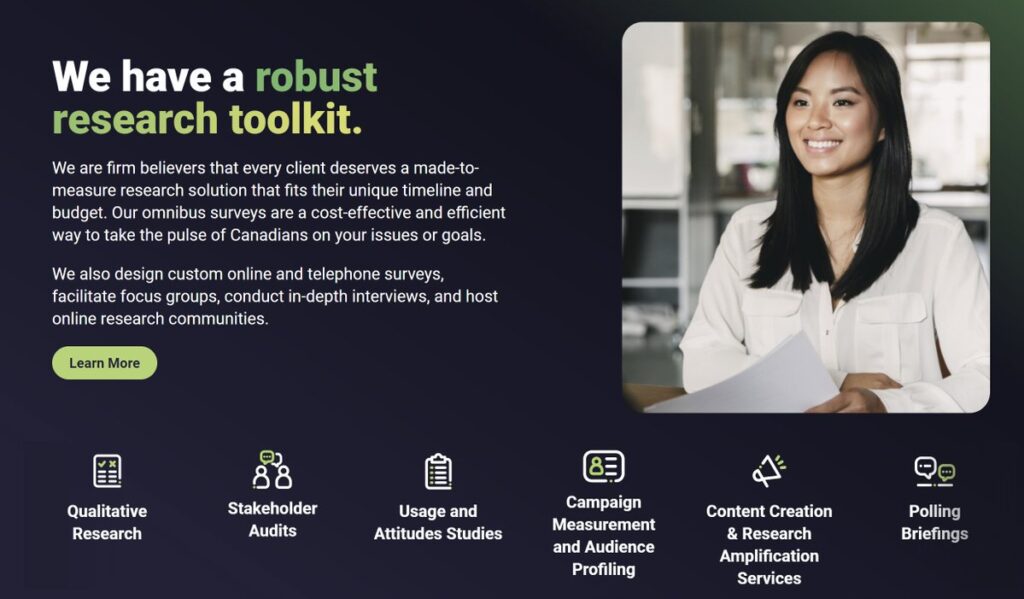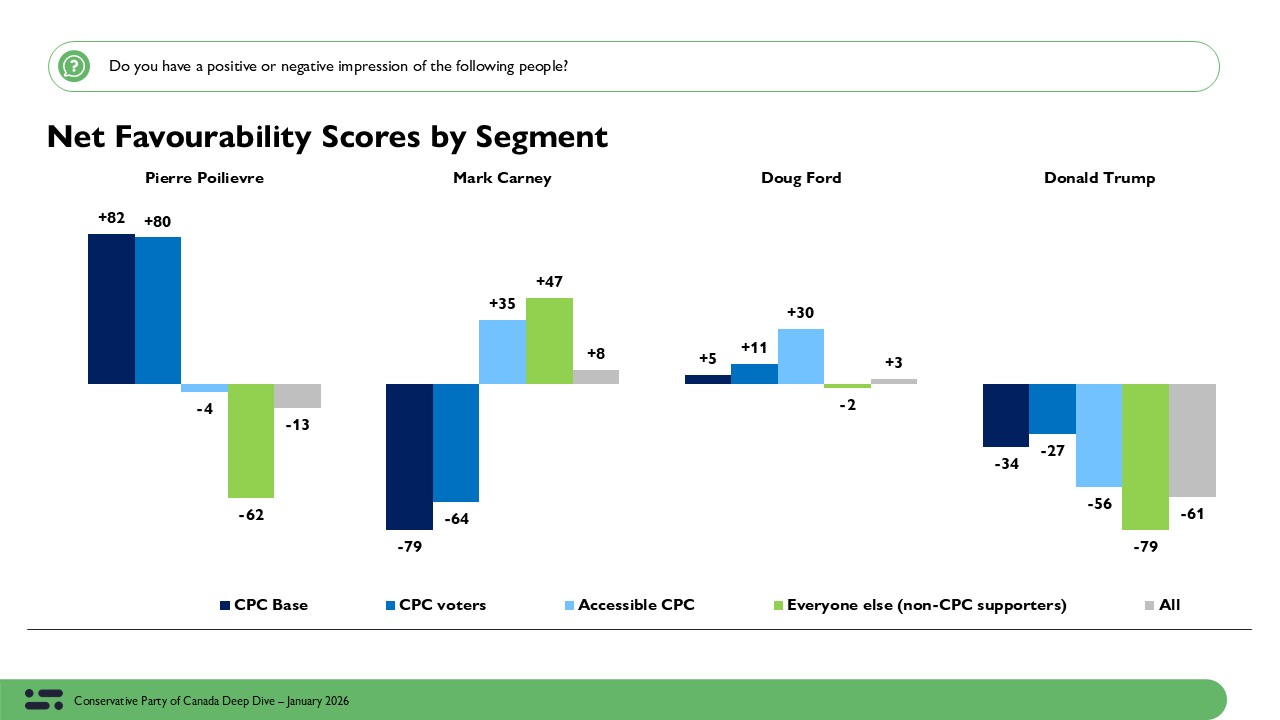Confidence, Clarity, and Control: Building a Stronger Future for Mutual and Segregated Funds
July 18, 2025
Between March 26 and April 4, 2025, Abacus Data surveyed 2,500 Canadian adults – 1,000 mutual or segregated fund holders and 1,500 members of the general public. This research, commissioned by Canada Life, explores how Canadians engage with these investment products, examining satisfaction, confidence, and barriers to entry. The findings reveal where mutual and segregated funds are performing well, where gaps remain, and how the industry can better connect with both current investors and those yet to enter the market.
Mutual Funds: Satisfaction Is High, Confidence Less So
Nearly two-thirds of Canadians with mutual funds report being satisfied with their investment experience (63%), compared to just 4% who are dissatisfied with their funds.

This strong satisfaction is driven by consistent performance and service:
- 69% of holders believe their fund supports their long-term goals
- 69% cite satisfaction with stable returns
- 68% feel positively about diversification and overall value
- 68% report satisfaction with the returns that they receive.

Investors are also satisfied with the broader experience. Most report high satisfaction with investment control (69%), customer service (68%), and quality of advice (68%), and ease of transactions (68%). These scores reflect the accessibility and reliability that mutual funds are known for.
Satisfaction with fees is lower at 55%, highlighting cost as a potential pressure point – especially as transparency and low-cost options grow in appeal. However, only 9% express concern, suggesting fees are noticed but not a major source of frustration for most investors.

Interestingly, just 43% of mutual fund holders feel their investments will meet their long-term financial goals, and 19% are unsure. This gap between satisfaction and confidence in long-term performance highlights a potential opportunity for advisors and providers to bridge experience and future assurance with clearer communication about how mutual funds can deliver on financial objectives over time.

Segregated Funds: High Satisfaction and Greater Confidence
Segregated fund holders report even higher satisfaction, with 74% saying they’re pleased with their investment (vs. 63% of mutual fund holders) while only 2% report being dissatisfied.

Segregated fund holders see the product as delivering strongly on key financial priorities, including alignment with long-term goals (78%), balanced returns (75%), diversification (75%), and risk protection (74%), a combination that drives consistently high satisfaction and low levels of dissatisfaction. Additionally, 73% are satisfied with the returns they receive, reinforcing the fund’s perceived overall value.

What’s more striking is that this satisfaction spans across nearly all major touchpoints:
- 76% are satisfied with both the quality of advice and responsive customer support
- 75% rate clarity and transparency highly
- 74% are satisfied with ease of use and overall performance
- 73% note being satisfied with the level of control they have over their funds
This consistency suggests that segregated funds are delivering a reliable, well-supported experience for investors.

Segregated fund holders show higher confidence, with 61% feeling assured their fund will meet long-term goals (vs. 43% of mutual fund holders). Just 13% express doubt, likely due to the added reassurance of features like death benefit guarantees and creditor protection.

Barriers to Investing in Mutual or Segregated Funds: A Missed Opportunity for Engagement
While mutual and segregated funds are well-regarded by current investors, uptake among the broader population remains limited – only 32% of Canadians have mutual funds, while 3% have segregated mutual funds. For those not currently invested in either product, the challenges are less about performance and more about awareness, confidence, and clarity.
Knowledge and Confidence Gaps Create Hesitation
For those who do not currently invest, specific barriers to entry are experienced. Knowledge gaps (37%), concerns about risk (24%), and uncertainty about how to get started (30%) remain significant hurdles.

Canadians Want Clear, Personalized Education
To build interest and trust in these products, Canadians need more tailored and transparent information. When asked what would help them feel more confident about investing, non-holders pointed to several key needs:
- Understanding of risks and returns (52%)
- Clear breakdowns of fees and charges (35%)
- Insight into how products align with their financial goals (35%)
- Information about guarantees or protection features (34%)
- Comparisons to other investment options (34%)

The Upshot
This research highlights a critical opportunity, not just to expand awareness, but to close the growing gap between engagement and confidence. Satisfaction among mutual and segregated fund holders is strong: investors feel supported, well-served, and generally positive about performance. Yet for many, particularly mutual fund holders, confidence in long-term outcomes remains shaky.
The challenge isn’t dissatisfaction, it’s disconnection. Many Canadians, especially those not currently invested, don’t see mutual or segregated funds as relevant to their financial lives. This is driven by low awareness, unclear value, and uncertainty about how these products align with personal goals. It reflects more than a communications issue, it signals a deeper mindset shift fueled by economic precarity.
In today’s climate, Canadians aren’t just looking for returns, they’re seeking reassurance, control, and purpose. Even financially active investors want to know: will this product protect me when things change? Will it help me stay in control?
For advisors and providers, the path forward is clear:
- Mutual fund holders need proactive, personalized guidance to close the confidence gap and reinforce long-term alignment.
- Segregated fund holders require ongoing reassurance and retention strategies that highlight both growth potential and protection.
- Disengaged Canadians need simplified, goal-based education and clear entry points that reduce friction and demystify investment products.
The takeaway is twofold: deepen the confidence of those already invested and reframe the relevance for those who aren’t. In an age shaped by financial precarity, success will go to those who can make investing feel not only smart, but safe, flexible, and empowering.
Methodology
The survey was conducted with 1,915 Canadian adults from March 26 to April 4, 2025. A random sample of panelists were invited to complete the survey from a set of partner panels based on the Lucid exchange platform. These partners are typically double opt-in survey panels, blended to manage out potential skews in the data from a single source.
The margin of error for a comparable probability-based random sample of the same size is +/- 1.96 %, 19 times out of 20.
The data were weighted according to census data to ensure that the sample matched Canada’s population according to age, gender, educational attainment, and region.
This survey was paid for by Canada Life.
Abacus Data follows the CRIC Public Opinion Research Standards and Disclosure Requirements that can be found here: https://canadianresearchinsightscouncil.ca/standards/

ABOUT ABACUS DATA
We are Canada’s most sought-after, influential, and impactful polling and market research firm. We are hired by many of North America’s most respected and influential brands and organizations.
We use the latest technology, sound science, and deep experience to generate top-flight research-based advice to our clients. We offer global research capacity with a strong focus on customer service, attention to detail, and exceptional value.
And we are growing throughout all parts of Canada and the United States and have capacity for new clients who want high quality research insights with enlightened hospitality.
Our record speaks for itself: we were one of the most accurate pollsters conducting research during the 2025 Canadian election following up on our outstanding record in the 2021, 2019, 2015, and 2011 federal elections.
Contact us with any questions.
Find out more about how we can help your organization by downloading our corporate profile and service offering.




